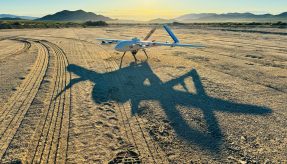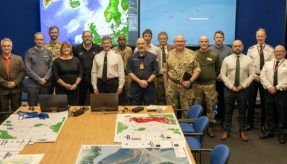
DSTL is celebrating International Women’s Day by shining the spotlight on one of its top female statisticians.
The Defence Science and Technology Laboratory (DSTL) is celebrating International Women’s Day through the work of Senior Principal Statistician Phillipa Spencer. Phillipa champions young people looking at maths as a career and heads the gender equality network in the organisation.
Phillipa said: “I always wanted to be a scientist. I was aware of great mathematicians such as Alan Turing and of Margaret Hamilton, who did all the coding for the Apollo space program – it was ground-breaking and inspiring.”
“Dr Hamiliton was a woman and she was leading the way in her own right. I remember seeing that unusual picture of her among all these men. Just like the conference picture of Marie Curie among the likes of Einstein and Heisenberg.”
“I am a technical lead in a project called Vulnerabilities, which looks to harden and defend autonomous military systems for deployment. The range of work a statistician and mathematician can do within an S&T organisation is wide and varied. Every piece of work having the impact and contributing to UK Defence, it’s what keeps me at Dstl. It’s what motivates me.”
Phillipa is working on three patents. One maps the human immune system to provide effective pre-treatment for sepsis, and her work on viral and bacterial discrimination has led to key decisions over when patients should receive antibiotics.
At a maths conference in San Diego, she spoke about the challenges women face in the industry. She urged young women to have confidence and recognised her own worries about appearing too forceful or bossy due to outdated perceptions.
She spoke about how she has often been the only woman in the room but praised DSTL for its collaborative environment. She offered advice on how to enter the industry and emphasised the demand for statistics and data workers.
If you would like to join our community and read more articles like this then please click here.
Dstl gender equality International Women’s Day mathematics miltary careers statistics Women in Defence Women in Science and Engineering








